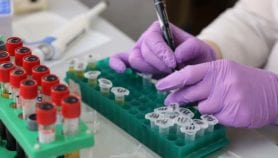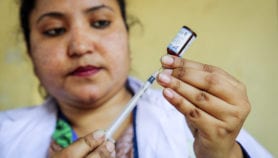Send to a friend
The details you provide on this page will not be used to send unsolicited email, and will not be sold to a 3rd party. See privacy policy.
[GENEVA] Developed and developing nations aired their fundamentally different attitudes on access to science and technology for development at a high-level meeting last week, according to attendees.
The disagreement came during a side event held as part of the UN Economic and Social Council's (ECOSOC) High Level Segment, in Geneva last week (1-4 July_. It revolved around the legitimacy of intellectual property (IP) rights for scientific knowledge, and whether such laws help or hinder development, says Irene Khan, director-general of the International Development Law Organization, who chaired the meeting.
At the event — attended by ambassadors, government ministers and policymakers — rich nations generally framed scientific knowledge as a product that can be privately owned and thus protected by strong IP laws, says Khan.
“Focusing on defining the problem rather than defining differences between countries is how we will find solutions.”
Dirk Dijkerman
Counterparts from developing countries regard access to science and technology as an entitlement, not a privilege.
If there is knowledge or technology that can help issues such as food insecurity, water management, and climate change, they believe it must be made available, says Khan.
"They feel that access to scientific knowledge is a prerequisite for development, and [that] without access it won't be possible to move rapidly [towards development]."
Mexico's ambassador to the UN in Geneva, Juan José Gómez Camacho, recognised this as a common North-South "ideological divide"over whether intellectual property rights drive or inhibit scientific innovation and development.
But the polarised debate is unhelpful, he says, adding that a middle road can provide what both sides want.
International IP laws, he explains, while protecting profits that generate investment and innovation, can also make exceptions that benefit poorer nations.
An agreement reached at a recent World Intellectual Property Organization diplomatic conference in Marrakesh could be exploited, says Camacho. It allows developing nations — particularly least developed countries — to circumvent copyright laws to provide educational resources for the visually impaired. Efforts need to focus on using this legal framework to provide similar access to scientific knowledge, he adds.
This necessity for exceptions in intellectual property laws was repeated in the main High Level Segment meeting by Gyan Chandra Acharya, the under-secretary-general for the Office of the High Representative for the Least Developed Countries, Landlocked Developing Countries and Small Island Developing States.
According to Khan, developing nations lack the legal capacity to access scientific knowledge through existing frameworks.
They must strengthen their legal institutions and human capacity to better negotiate important agreements, such as ownership of indigenous knowledge in biodiversity conventions, or licensing that facilitates technology transfer, she says.
However, Dirk Dijkerman, a special advisor for the Organisation for Economic Co-operation and Development's Development Strategy, believes there is general consensus that the situation is much more complicated than a North-South split.
He says that despite inevitable disagreements on the exact path to take, there is widespread agreement that any system promoting access to science needs to strike a balance between protection and wide dispersal.
"Focusing on defining the problem rather than defining differences between countries is how we will find solutions," he tells SciDev.Net.














